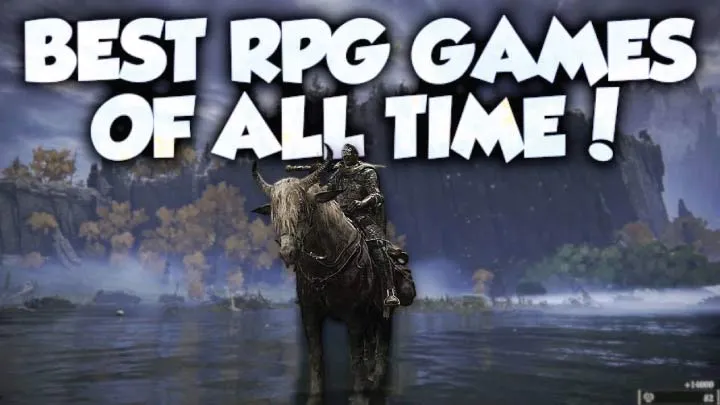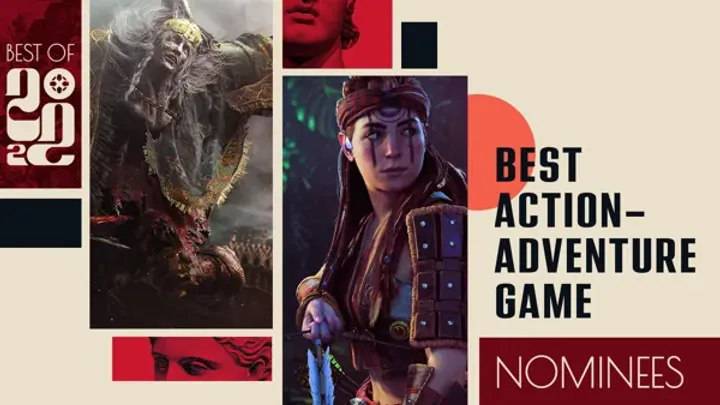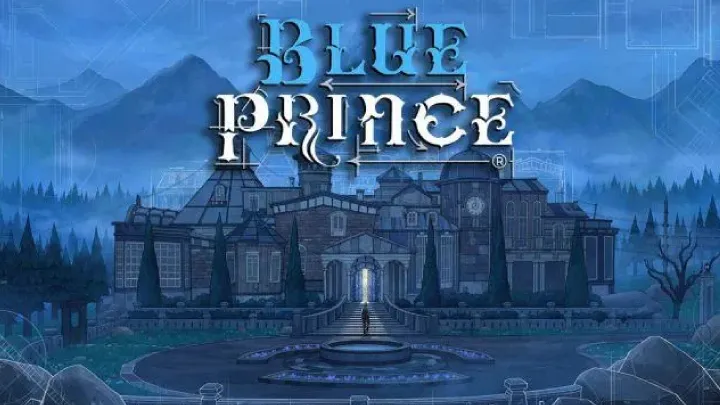Top RPGs That Changed Gaming Forever
Role-playing games (RPGs) are the heart and soul of storytelling in gaming. They let us become heroes, villains, wanderers, or gods — to live entire lifetimes in worlds beyond imagination. From pixelated beginnings on 8-bit systems to cinematic masterpieces with moral depth, RPGs have constantly pushed boundaries. These games didn’t just entertain — they changed gaming forever.
In this article, we’ll explore five iconic RPGs that redefined what it means to play, to feel, and to grow through interactive storytelling. Each title left an indelible mark on the industry — influencing everything from combat design to emotional narrative. Let’s dive into the unforgettable worlds that reshaped the genre forever.
1. Final Fantasy VII – The Birth of Cinematic Storytelling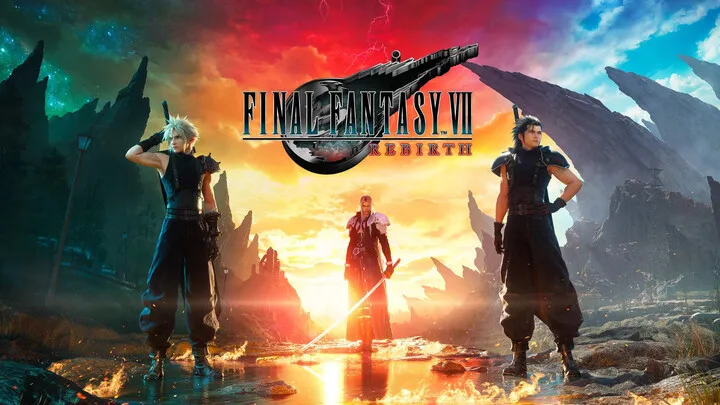
When Final Fantasy VII launched in 1997, it didn’t just redefine RPGs — it redefined gaming. Square Enix’s magnum opus combined sweeping narrative, cinematic visuals, and emotional storytelling on a scale that had never been seen before.
The Leap to 3D
Before Final Fantasy VII, RPGs were largely two-dimensional experiences. This game shattered that boundary. With 3D character models, pre-rendered backgrounds, and stunning cutscenes, it brought cinematic immersion to the genre. The moment Cloud Strife stepped off the train into Midgar, players knew they were entering something revolutionary.
A Story That Moved the World
The narrative — a battle against the corrupt Shinra Corporation and the hauntingly iconic Sephiroth — introduced players to complex moral themes: identity, environmentalism, and the cost of ambition. And of course, Aerith’s tragic death remains one of gaming’s most unforgettable moments, proving that games could evoke genuine grief.
Legacy and Influence
Final Fantasy VII didn’t just shape RPGs; it shaped global gaming culture. It showed that video games could rival Hollywood in storytelling. Its remake decades later further cemented its legend, proving that its impact endures across generations.
2. The Elder Scrolls V: Skyrim – The Freedom Revolution
Few games embody freedom like The Elder Scrolls V: Skyrim. Released in 2011 by Bethesda, this open-world RPG became a cultural phenomenon, setting new standards for immersion, exploration, and player agency.
A Living, Breathing World
From the snow-covered peaks of the Throat of the World to the ancient ruins filled with secrets, Skyrim’s world felt alive. Players could follow the main quest or ignore it entirely — becoming a thief, assassin, mage, or even a simple blacksmith. Every choice shaped the player’s experience, creating a world that belonged to you.
The Power of Player Freedom
Unlike traditional RPGs that restrict paths, Skyrim thrived on choice. You could slay dragons, join political rebellions, or steal cheese wheels for fun. That level of freedom made the world unforgettable — and gave rise to a new generation of sandbox-style RPGs.
Modding and Longevity
Perhaps Skyrim’s greatest legacy is its modding community. Fans have rebuilt and expanded the game for over a decade, keeping it alive with new stories, mechanics, and even full remakes. It’s not just a game — it’s a living ecosystem of creativity.
3. The Witcher 3: Wild Hunt – The Pinnacle of Narrative Depth
When CD Projekt Red released The Witcher 3: Wild Hunt in 2015, it instantly set the gold standard for RPG storytelling. Building upon the foundations of the fantasy novels by Andrzej Sapkowski, the game blended rich world-building, emotional complexity, and moral ambiguity into one of the most immersive experiences ever created.
The World of Consequence
What set The Witcher 3 apart was its commitment to consequence. Every choice, no matter how small, had ripple effects that shaped the world. Save a village, and it might prosper; ignore it, and you might return to find it destroyed. This level of dynamic storytelling transformed how players viewed morality in games.
Character Depth and Humanity
Geralt of Rivia isn’t a blank-slate protagonist — he’s a fully realized character. His relationships with Yennefer, Ciri, and Triss carry emotional weight rarely seen in gaming. Through dialogue, decision-making, and action, players explore the nature of destiny and love.
Visual and Musical Mastery
From lush meadows to war-torn villages, the world of The Witcher 3 feels real. The haunting soundtrack and detailed environments make every step immersive. It’s a masterpiece where art, story, and interactivity blend seamlessly — redefining RPG immersion.
4. Dark Souls – The Art of Challenge and Discovery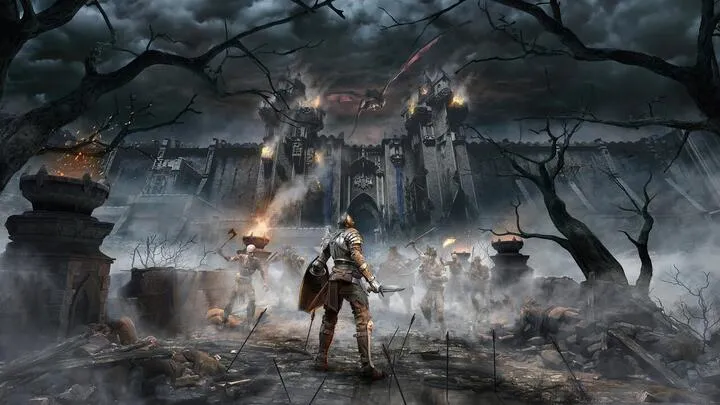
In 2011, Dark Souls arrived quietly — but its echo has never faded. FromSoftware’s brutal yet beautiful creation challenged players not just to fight, but to learn. It turned difficulty into a philosophy, spawning an entire subgenre known as “Soulslike” games.
A World of Mystery
Unlike other RPGs that hold your hand, Dark Souls gives you almost nothing. You learn by dying — again and again. Each failure teaches you something new. Every enemy placement, shortcut, and item description hides fragments of lore waiting to be pieced together.
The Language of Design
What truly makes Dark Souls legendary is its level design. The interconnected world loops back on itself in brilliant ways, making discovery deeply satisfying. From the undead parish to Anor Londo, every location feels like a revelation when you realize how perfectly it fits together.
The Power of Persistence
Dark Souls redefined what it means to “earn” victory. Every boss battle feels monumental not because of spectacle, but because of effort. It inspired players to embrace failure as progress — a concept now embedded in modern gaming design philosophy.
5. Mass Effect Trilogy – Choice, Connection, and Consequence
Bioware’s Mass Effect series changed RPG storytelling forever by merging cinematic dialogue, branching narratives, and emotional relationships into a seamless sci-fi epic. Across three interconnected games, your decisions shaped not only your character but the fate of an entire galaxy.
A Universe That Reacts to You
Every choice mattered. From saving species to choosing allies, your actions had lasting effects that carried from one installment to the next. This sense of continuity made players feel like true authors of their story — a rare feat in gaming.
Building Bonds
Commander Shepard wasn’t just a hero — they were a reflection of the player. The crew aboard the Normandy became more than NPCs; they were companions, lovers, and friends. Losing them hurt. Saving them felt like victory beyond gameplay.
Emotional Closure
Even with its controversial ending, Mass Effect remains one of the most emotionally resonant RPG experiences ever made. It proved that games could weave complex human relationships into interactive storytelling — a concept that continues to inspire modern narrative design.
6. Chrono Trigger – The Timeless Classic
Before cinematic graphics and open worlds, there was Chrono Trigger — a 1995 SNES masterpiece that defined the golden age of RPGs. Created by a “dream team” of developers from Final Fantasy and Dragon Quest, it blended innovation, charm, and emotional storytelling perfectly.
Time Travel and Choice
Chrono Trigger introduced nonlinear storytelling before it was fashionable. Its time-travel mechanic allowed players to visit multiple eras — and their actions in one era could affect another. With 13 possible endings, it offered unprecedented replay value.
Emotional Simplicity
Despite 16-bit visuals, Chrono Trigger delivered emotional power rivaling modern games. From the self-sacrifice of Frog to the haunting story of Magus, its characters remain iconic. The soundtrack, composed by Yasunori Mitsuda and Nobuo Uematsu, still resonates as one of gaming’s greatest.
A Legacy of Inspiration
Every RPG that followed owes something to Chrono Trigger. Its blend of accessibility and depth made it a blueprint for narrative-driven adventures. Decades later, it remains a timeless masterpiece that continues to influence developers.
7. Persona 5 – Style Meets Substance
Atlus’s Persona 5 is a celebration of rebellion, identity, and personal growth. It’s more than an RPG — it’s a social simulator, rhythm game, and philosophical reflection all in one.
The Dual Life of a Teen Rebel
You play as a high school student by day and a Phantom Thief by night, battling corruption in a metaphysical realm called the Metaverse. The blend of mundane routines and surreal combat made Persona 5 unique — balancing reality with fantasy flawlessly.
Visual and Musical Brilliance
Every frame of Persona 5 oozes style. The red-and-black aesthetic, jazz-infused soundtrack, and bold UI design turned it into a pop culture icon. Few games fuse identity, rebellion, and artistry this elegantly.
Emotional Resonance
More than just turn-based combat, Persona 5 is about forming bonds, understanding trauma, and changing hearts — literally and figuratively. It’s a game that empowers players to confront injustice while exploring who they truly are.
8. Fallout: New Vegas – Freedom and Consequence in the Wasteland
Released in 2010, Fallout: New Vegas took post-apocalyptic storytelling to new heights. Developed by Obsidian Entertainment, it built upon the Fallout universe with unparalleled freedom and moral complexity.
Choice and Morality
Every faction in New Vegas — from the NCR to Caesar’s Legion — offered compelling ideology. There were no clear heroes or villains, only shades of gray. Your choices determined alliances, wars, and endings, making each playthrough deeply personal.
Writing That Rivals Cinema
The dialogue and branching quests remain benchmarks for RPG writing. Companions like Veronica and Boone are as memorable as any movie character, thanks to their depth and humanity.
Cult Classic to Legend
Initially buggy at launch, New Vegas grew into one of the most beloved RPGs ever. It redefined open-world storytelling, proving that player-driven narrative can coexist with deep world-building.
9. Dragon Age: Origins – The Return to Classic Fantasy
In 2009, Dragon Age: Origins rekindled the spirit of classic RPGs like Baldur’s Gate while modernizing the formula. It was dark, strategic, and emotional — a spiritual successor to traditional Western fantasy with moral nuance.
Tactical Combat and Storytelling
Unlike the action-heavy RPGs that followed, Origins emphasized strategy. You could pause time, plan attacks, and tailor your party’s skills. Each companion had personal quests and moral depth, making every choice meaningful.
The Grey Warden’s Journey
The story of the Grey Wardens battling the Blight was epic yet intimate. Choices — from romance to alliances — could alter entire kingdoms. It taught players that power and compassion are inseparable in leadership.
Legacy of Influence
Dragon Age: Origins laid the groundwork for Bioware’s later narrative systems, combining traditional role-playing with cinematic presentation — a perfect balance of old and new.
10. Cyberpunk 2077 – Redemption Through Reinvention
Though Cyberpunk 2077 launched controversially, its redemption arc is legendary. After major updates, it stands today as one of the most ambitious RPGs of all time — a neon-soaked narrative about identity, control, and rebellion.
A Futuristic Vision
Night City is a living, breathing organism — full of danger, dreams, and corruption. Every street corner tells a story, every character hides a secret. CD Projekt Red’s attention to detail creates a sense of immersion unmatched in modern games.
Moral and Emotional Depth
The story of V and Johnny Silverhand explores the nature of consciousness and freedom in a world ruled by corporations. Every choice — from relationships to endings — shapes the player’s philosophy of survival.
A New Standard for Redemption
After its rocky start, Cyberpunk 2077 evolved into one of the most polished, story-rich RPGs ever. Its journey mirrors its themes — imperfection, transformation, and the fight to reclaim identity.
Conclusion – The Eternal Evolution of RPGs
RPGs are more than just games — they’re living worlds, philosophical explorations, and emotional mirrors. From Final Fantasy VII’s cinematic heartbreak to The Witcher 3’s moral dilemmas, each title on this list transformed the genre and influenced generations of players and creators.
The magic of RPGs lies in their power to connect us — to let us make choices, live stories, and face consequences in ways that reflect real life. These games didn’t just change gaming; they changed us.
So whether you’re slaying dragons in Skyrim, bending fate in Chrono Trigger, or confronting your inner self in Persona 5, remember — every RPG is a journey of discovery, both within its world and within yourself.










